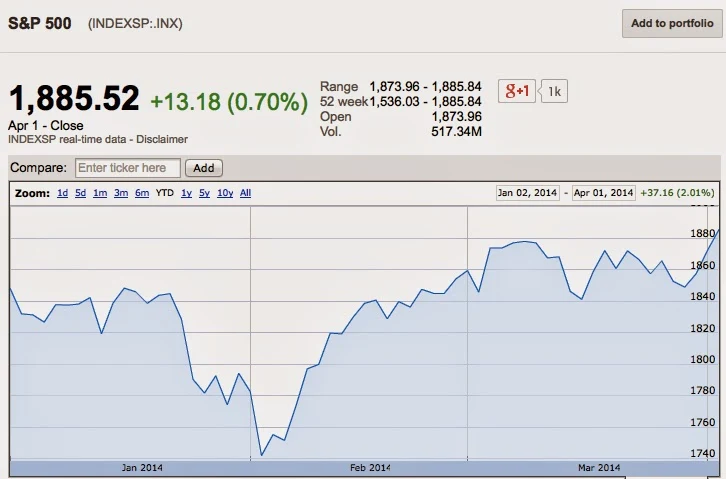Wednesday, December 17, 2025
Wednesday, April 6, 2022
Remember last fall when a bunch of Nobel economists assured us that gobs more spending by Joe Biden wouldn't have serious inflationary impacts?
Here's what the ring leader of Tom Nichols' vaunted expert class of economists had to say at the time:
Some, however, have invoked fears of inflation as a reason to not undertake these investments. This view is short-sighted. ... We need safe school buildings and bridges, and affordable child and elder care, whether inflation is 2% or 5%. With the investments being financed by tax increases, the inflationary impacts will be at most negligible ...
The Build Back Better package ... would transform the U.S. economy to be more efficient, equitable, sustainable, and prosperous for the long run, without presenting an inflationary threat.
From Joe Stiglitz' letter last September, here. Robert Shiller of all people signed on to this load of hooey. Carl Schramm unloaded on all this yesterday, here.
Stiglitz wrote that with a straight face when inflation had already soared to 5.3% in July. The orgy of coronavirus spending in 2020-2021 was already stoking the inflation engine, but the experts then simply ignored it, and called for more! more! more!
Now look where we are, even without more.
Government spending in the United States hasn't been financed by tax increases in decades. We wouldn't be $30 trillion in the hole if it were. It's financed by borrowing, and the interest payments on that borrowing progressively accumulate to crowd-out other spending. One day soon interest payments on the debt will become the biggest part of the budget, severely limiting our ability to allocate resources responsibly.
Sunday, March 25, 2018
Robert Shiller: Great Depression tariffs did not plausibly, directly affect economic growth in a major degree
Friday, May 19, 2017
Robert Shiller blames housing bubbles on get rich quick flipper narratives, still completely misses the tax angle
Friday, January 23, 2015
S&P 500 market capitalization/GDP ratios the years before plus-20% crashes
 |
| http://www.advisorperspectives.com/dshort/commentaries/CAPE-at-Market-Peaks.php |
1956: 101
1957: 84
1960: 107
1961: 123
1962: 103
1965: 120
1966: 96
1967: 109
1968: 107
1969: 88
1970: 84
1972: 89
1973: 66
1974: 43
1979: 40
1980: 45
1981: 37
1982: 41
1986: 52
1987: 49
1999: 148
2000: 126
2001: 107
2002: 79
2006: 101
2007: 100
2008: 62
2009: 77
Thursday, November 27, 2014
Saturday, November 8, 2014
The S&P500 ends the week just 0.7% below the all-time inflation-adjusted high in August 2000
Tuesday, October 21, 2014
Since the last market peak in August 2000, real returns from stocks have averaged just 1.61% per year through August 2014
 |
| politicalcalculations.blogspot.com |
The inflation-adjusted market peak was in August 2000 at S&P500 2044.67, still unequalled (2011.36 is as high as we've gotten). Through August 2014, your average real return from stocks, that is, your return adjusted for inflation with dividends fully reinvested along the way, has been just 1.61% per year for 14 years. Without dividend reinvestment, your return actually has been negative annually because of inflation. Nominally your return has been 3.95% per year, dividends reinvested.
Monday, July 14, 2014
Buy and hold investors from the Aug.'00 high have made all of 1.32%/yr through May 2014
Wednesday, July 9, 2014
Josh Brown must be nuts: valuations are high, markets are exuberant and growth is as pathetic as 2007
Monday, June 30, 2014
Market cap to GDP ratios March 2009 vs. March 2014 flash valuation warning
Monday, June 16, 2014
Shiller p/e vs. S&P500 p/e: Was either a guide to investing since 2008?
Wednesday, June 4, 2014
Shiller p/e hits 25.94 as total market index and S&P500 make the barest of new highs
Wednesday, April 23, 2014
Housing is a store of value, not an investment
Tuesday, April 1, 2014
Saturday, January 18, 2014
Both Shiller p/e and Tobin's q warn stocks are seriously overvalued
Wednesday, December 18, 2013
John Hussman Is Right: High Valuations Since The Late 1990s Have Coincided With Smaller S&P500 Returns
 |
| click to enlarge |
 |
| click to enlarge |
 |
| click to enlarge |







